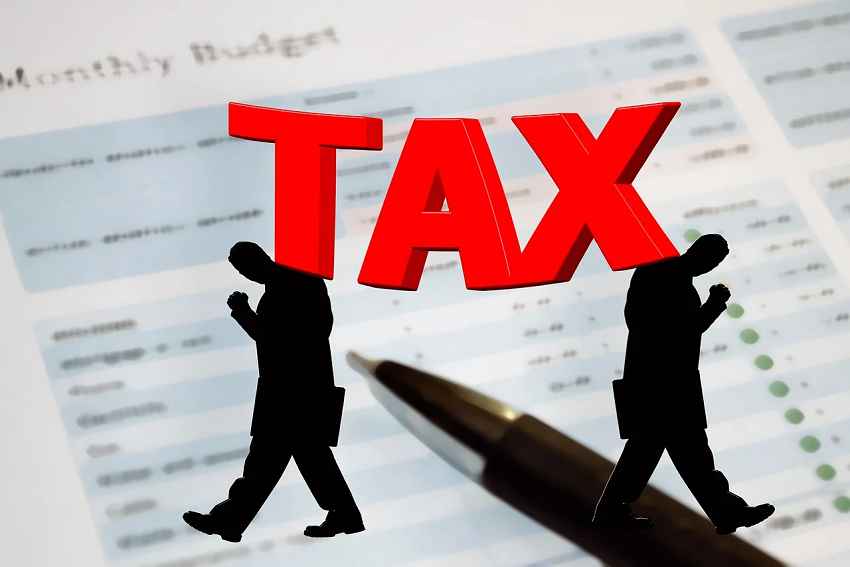As a business owner in Nigeria, it’s crucial to understand the different types of taxes you’re required to pay to avoid legal complications and penalties.
Not paying the correct taxes can lead to legal consequences, fines, and even business closure. With Nigeria’s complex tax system, it’s not uncommon for entrepreneurs to struggle with staying compliant.
This blog post aims to provide clarity on the five types of taxes that businesses in Nigeria must know to stay compliant.
Whether you’re a sole proprietorship, a partnership, or a limited liability company, understanding the different types of taxes and your obligations as a business owner is essential.
By familiarizing yourself with Nigeria’s tax system and knowing what you need to pay, you can avoid legal problems and focus on growing your business.
In the following sections, we’ll discuss each type of tax, who is required to pay them, and the penalties for non-compliance.

1. Company Income Tax
Nigerian companies pay Company Income Tax on profits calculated on taxable profit.
Only limited liability companies are subject to Company Income Tax.
The current rate of Company Income Tax in Nigeria is 30%.
Company Income Tax is payable annually on profits from business operations.
Profits from asset sales or investments are exempt from Company Income Tax.
Businesses can deduct certain expenses such as depreciation and capital allowances from their revenue.
Compliance with tax regulations is crucial to avoid legal issues.
Business owners need to understand the intricacies of Company Income Tax to comply with tax regulations.
Company Income Tax is based on the revenue minus the allowable expenses.
Sole proprietorships and partnerships are exempt from Company Income Tax.
If you’re a business owner in Nigeria, read on to learn about the five types of taxes that you need to know to avoid legal complications and ensure compliance.
2. Valude Added Tax (VAT)
VAT is a consumption tax in Nigeria, with a current rate of 7.5%.
Registered businesses must charge and collect VAT on taxable goods and services.
The collected VAT is remitted to the Federal Inland Revenue Service (FIRS).
VAT returns must be filed monthly by the 21st day of the following month.
Late payment or non-payment of VAT can result in penalties and interest charges.
VAT applies to most goods and services in Nigeria, but with some exceptions. Exempt items have no
VAT, while zero-rated goods and services have a 0% rate. Businesses can claim input VAT incurred on zero-rated goods and services purchases.
VAT is an important source of revenue for the government.
Compliance with VAT regulations is crucial for businesses to avoid penalties.
Maintaining good relations with tax authorities is also essential for businesses.
3. Withholding Tax
Withholding Tax is deducted at source from payments made in Nigeria.
Rent, interest, dividends, royalties, and professional fees are subject to Withholding Tax.
The payer deducts the tax and remits it to the Federal Inland Revenue Service.
The rate of Withholding Tax varies based on payment type and recipient status.
The rate for dividends paid to resident individuals is 10%.
The rate for dividends paid to non-resident individuals is 7.5%.
Non-remittance of Withholding Tax attracts penalties and interest charges.
Businesses must understand Withholding Tax intricacies to comply with tax regulations.
4. Personal Income Tax
Personal Income Tax is levied on individuals’ income in Nigeria.
Employers deduct and remit Personal Income Tax to state tax authorities.
Tax rates vary based on income bracket, from 7% to 24%.
A progressive tax system means high earners pay more tax.
Personal Income Tax is a significant revenue source for state governments.
Compliance with Personal Income Tax regulations is crucial for businesses.
Non-compliance can lead to penalties and legal issues.
Personal Income Tax returns must be filed annually.
Some deductions and exemptions are available to taxpayers.
Understanding Personal Income Tax is important for individuals and businesses
5. Education Tax
Education Tax applies to registered companies in Nigeria and funds education.
Only limited liability companies are subject to Education Tax.
The tax rate is 2% of assessable profits, deducting allowable expenses and exemptions.
All registered businesses in Nigeria must file and pay Education Tax yearly.
The deadline for filing is six months after the financial year’s end.
Penalties and interest charges apply to late or non-payment of Education Tax.
Companies’ compliance with regulations contributes to education development.
Education Tax filings must be accurate and timely.
Keeping records of assessable profits and deductions helps facilitate the process.
Consultation with professionals helps ensure adherence to Education Tax rules.
6. Capital Gain Tax
Capital Gains Tax applies to sales of land, buildings, stocks, and shares in Nigeria.
The tax is a percentage of profit from asset sales and paid by the seller.
The tax rate is 10%, and the seller is responsible for payment.
Buyers deduct and remit the tax to the Federal Inland Revenue Service.
Compliance with Capital Gains Tax regulations is mandatory for all businesses selling capital assets in Nigeria.
Non-payment of tax can lead to penalties and legal issues.
Seeking professional advice is advisable for compliance with regulations.
Accurate record-keeping of capital asset sales is necessary for tax calculations.
Understanding tax exemptions and allowances is essential to reduce tax liability.
Proper filing of tax returns helps to avoid penalties and legal issues.